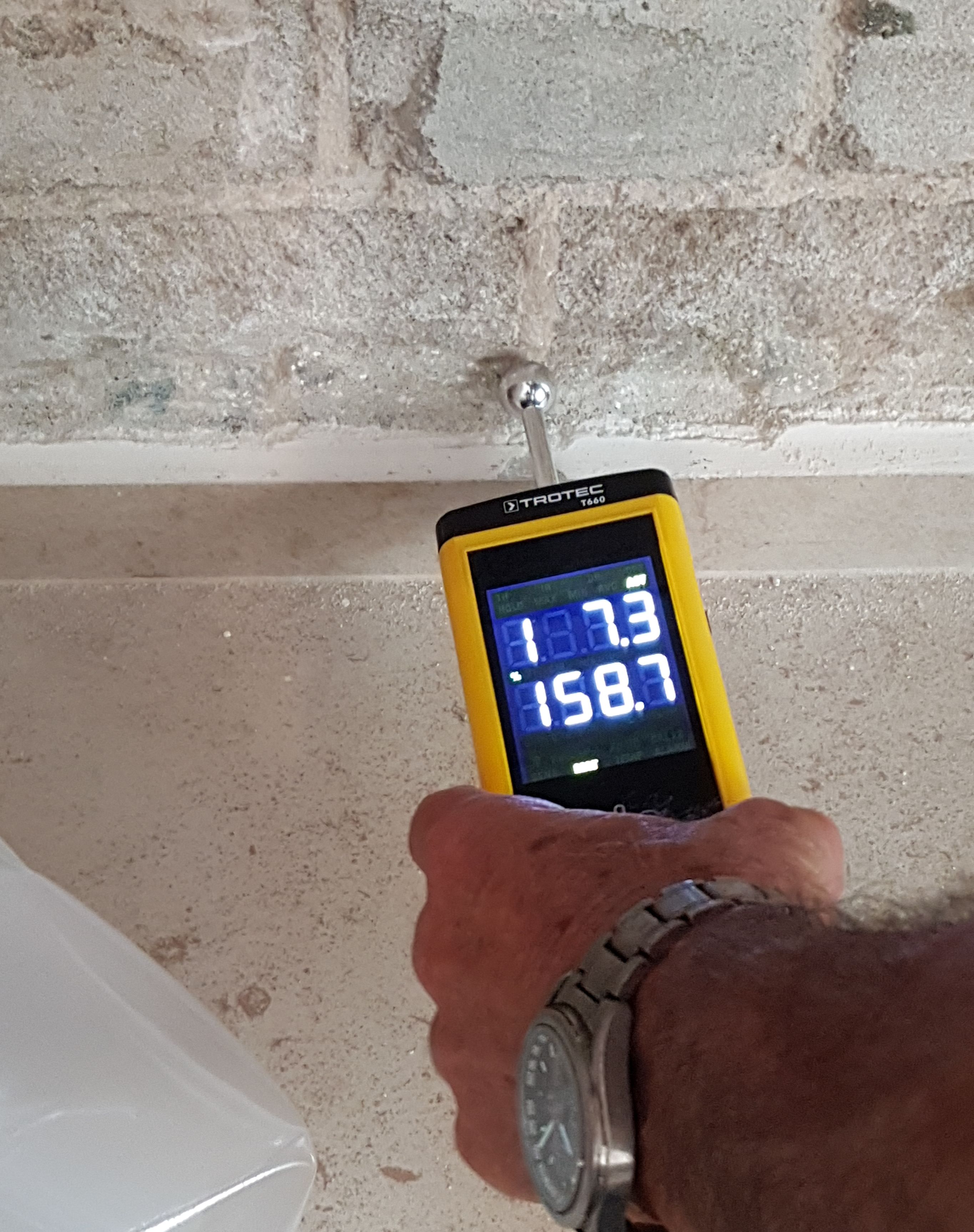Moisture Meter Acquiring Overview: What to Search for in High-Quality Instruments
Moisture Meter Acquiring Overview: What to Search for in High-Quality Instruments
Blog Article
The Ultimate Guide to Dampness Meters: A Comprehensive Introduction and Exactly How They Can Save You Money
Dampness meters offer as important devices in discovering and monitoring moisture content in materials, helping in protecting against pricey damages and making certain the high quality of products. Comprehending the subtleties of different kinds of moisture meters, their applications, and the potential cost-saving benefits they offer can be a game-changer for businesses and specialists alike.
Kinds of Wetness Meters
One common kind is the pin-type dampness meter, which determines the electric resistance between two pins inserted right into a material. Pinless moisture meters, on the other hand, usage electromagnetic sensing unit plates to check a larger area without creating damages to the material's surface.

Infrared dampness meters gauge the thermal residential or commercial properties of a material to determine its moisture web content non-invasively, making them helpful for applications where pin or pinless meters may not be ideal. Comprehending the different kinds of moisture meters offered can aid markets select the most suitable device for their specific wetness dimension requirements.

Benefits of Making Use Of Dampness Meters
Dampness meters offer indispensable advantages in precisely keeping track of and examining wetness degrees in varied products and settings. One of the primary benefits of utilizing moisture meters is the avoidance of prospective damage caused by excess dampness.
Moreover, making use of moisture meters can lead to boosted energy effectiveness. In farming settings, moisture meters play a critical role in maximizing plant yields by enabling farmers to keep an eye on dirt moisture levels and make notified watering choices.
How to Choose the Right Dampness Meter
When choosing a moisture meter, it's vital to make sure that the meter is ideal for the specific product you will certainly be screening. Different materials have differing electrical residential or commercial properties that can affect dampness analyses, so picking a meter developed for your product is crucial for exact results. By very carefully assessing these factors, you can pick a dampness meter that fulfills your requirements and supplies precise dampness dimensions for your tasks.
Correct Methods for Moisture Meter Usage

Cost Cost Savings Through Wetness Meter Applications
Exactly how can the calculated usage of moisture meters cause substantial expense savings across different markets? Moisture meters play an essential function in price financial savings by protecting against prospective damages and making sure high quality control in various industries. In the agriculture market, dampness meters aid in identifying the optimal time for harvesting plants, preventing over-drying or excess moisture that can influence the final product's top quality. This precise monitoring aids farmers prevent unneeded losses and optimize their return.
Likewise, in building and construction, dampness meters help stop costly damages by spotting wetness levels in structure products, such as wood or concrete, which can bring about architectural problems look at more info otherwise attended to immediately. By determining problem areas early, professionals can take corrective procedures to stay clear of substantial fixings or replacements, eventually saving time and cash.
Additionally, in the food processing sector, wetness meters are important for keeping track of product quality and ensuring compliance with safety regulations. By properly gauging dampness web content in food products, makers can stop spoilage, maintain quality, and reduce waste, causing substantial price savings. On the whole, the critical application of moisture meters is a valuable investment that can result in substantial price reductions and enhanced effectiveness throughout different markets.
Final Thought
In verdict, moisture meters are useful tools for determining and identifying wetness levels in various materials. By making use of the ideal dampness meter and complying with appropriate strategies, users can properly prevent costly problems created by excess moisture.
Wetness meters serve link as important devices in discovering and keeping an eye on moisture web content in materials, aiding in stopping costly problems and ensuring the high quality of items. Infrared dampness meters gauge the thermal residential or commercial properties of a product to establish its moisture content non-invasively, making them helpful for applications where pin or pinless meters might not be appropriate.Moisture meters use important advantages in properly analyzing and checking dampness levels in diverse products and settings. In farming setups, dampness meters play a vital role in maximizing crop yields by enabling farmers to keep an eye on dirt wetness degrees and make notified irrigation decisions.In verdict, moisture meters are valuable tools for identifying and click site determining moisture degrees in numerous materials.
Report this page